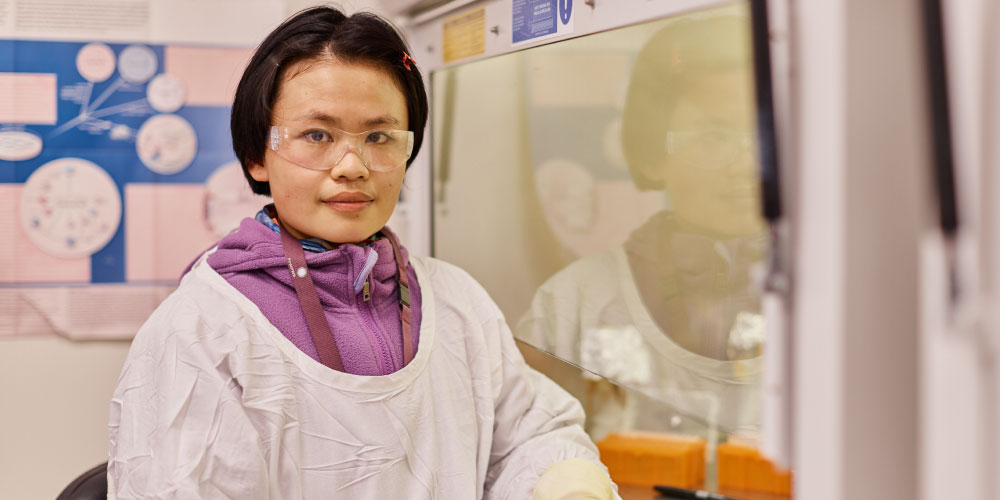
For three decades, researchers and clinicians at the Royal Women’s Hospital’s Pregnancy Research Centre have been improving outcomes for women and babies. Now they’re looking ahead to the next 30 years.
Researchers from all over the world will present online at a two-day conference over 17 and 18 March 2023 to celebrate 30 years of the Women’s Pregnancy Research Centre.
The line-up features some of the most well-known people in their field – researchers from Oxford University in the UK, from Finland, Singapore, China, Germany and throughout Australia. All of the presenters have worked at, or been collaborators of, the Women’s Pregnancy Research Centre over the years.
It’s a reflection of the impact the centre has had on improving healthcare outcomes for women and babies, says Professor Shaun Brennecke AO, Director of the Pregnancy Research Centre and Department of Maternal-Fetal Medicine at the Women’s.
30 years of advancements in care
Professor Brennecke says the focus of the Women’s Pregnancy Research Centre has always been to better understand the causes and introduce new ways of diagnosing and treating pregnancy complications. These include miscarriage, pre-eclampsia, fetal growth restriction, gestational diabetes and preterm labour.
The centre has produced more than 900 publications, received more than $30 million in external funding and supported more than 150 clinicians to advance their learning. Many of these clinicians have gone on to become leaders at the Women’s and elsewhere.
Some of the centre’s work has been directly translated into improved care for women and babies across Australia including:
- the common use of folate before and during early pregnancy so as to minimise the chances of birth defects of the brain and spine. The Women’s led the Victorian education program to encourage folate usage in early pregnancy.
- the development of a program in Victoria that was effective in helping to minimise women smoking in pregnancy
- being the first hospital in Australia to introduce the fetal fibronectin test to diagnose or predict preterm labour.
- being the first healthcare provider in Australia to introduce the Preeclampsia Ratio (PERT) test, which helps to predict if a woman is going to develop preeclampsia, a potentially fatal pregnancy condition. The team is now in the process of trying to get the PERT test incorporated into the Medicare Benefits Schedule so that it can be used more widely around Australia.
“You can really see the difference our work has made. For example, the introduction of the PERT test has provided a sense of relief, which you see on a woman’s face when you tell her that the test was normal and she’s got weeks ahead of her where she doesn’t have to worry about pre-eclampsia,” explains Professor Brennecke.

Looking ahead
Like in most other sectors, machine learning will play a significant role in the treatment of pregnancy complications in the future. This is now one area of focus for the Women’s Pregnancy Research Centre. The team has received a grant from the Medical Research Council in the UK to work with researchers from the University of Oxford on the use of artificial intelligence in fetal heart rate monitoring.
Other areas of focus include:
- regenerative medicine using stem cells from the placenta
- pre-eclampsia, withseveral projects continuing to advance the diagnosis and treatment knowledge
- preterm labour
- dysfunctional labour.
The Women’s Chief Medical Officer Dr Mark Garwood says the impact of the Women’s Pregnancy Research Centre is a testament to the hard work of our researchers and their collaborators and will continue to set the standard in this space.
“The Women’s is proud of the contributions we’ve made to improving the care of pregnant women and their babies over the past 30 years, not just at our hospital but locally and internationally,” says Dr Garwood. “Our aim is to continue to expand this impact to ensure future generations experience better health outcomes.”